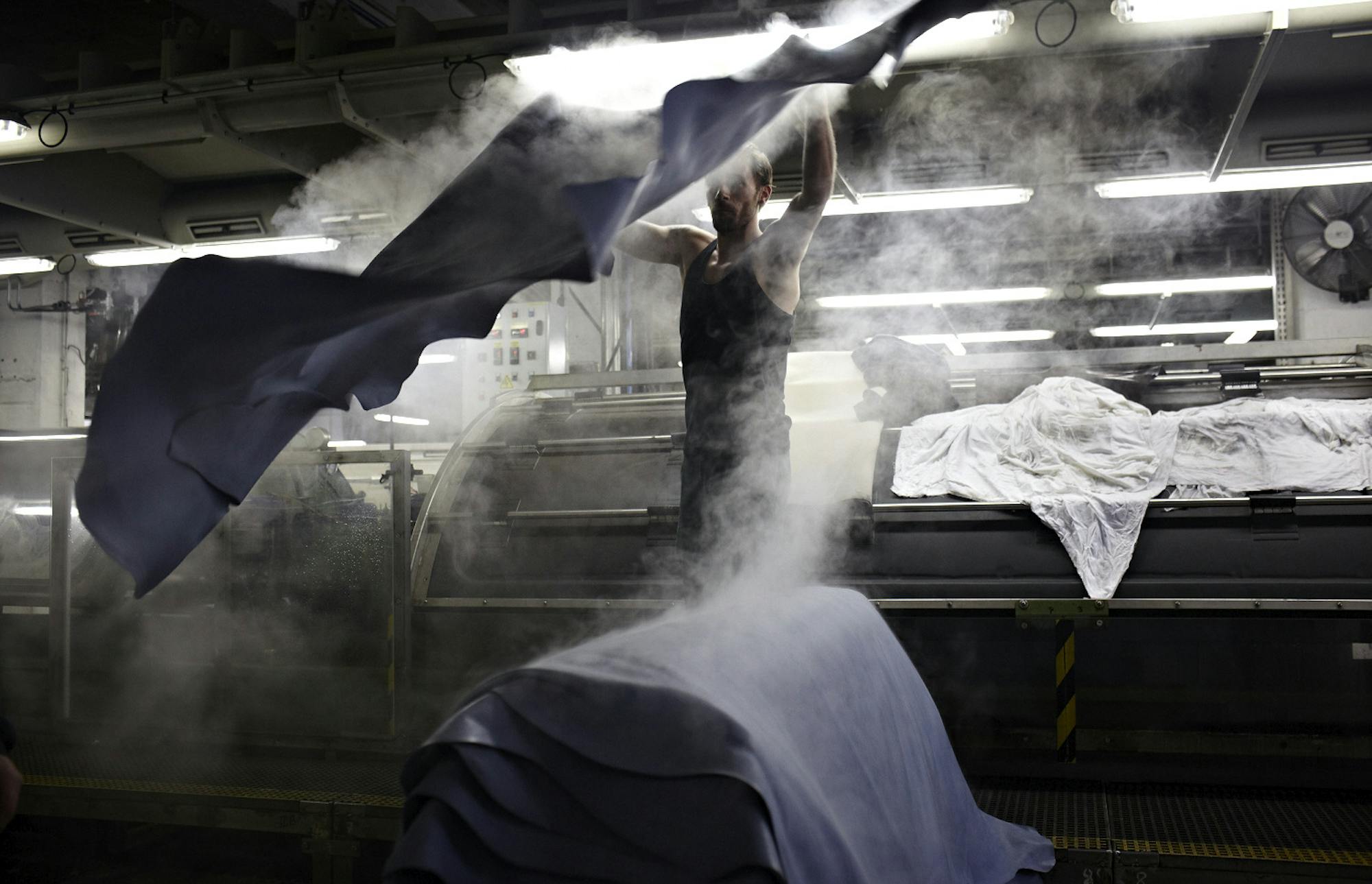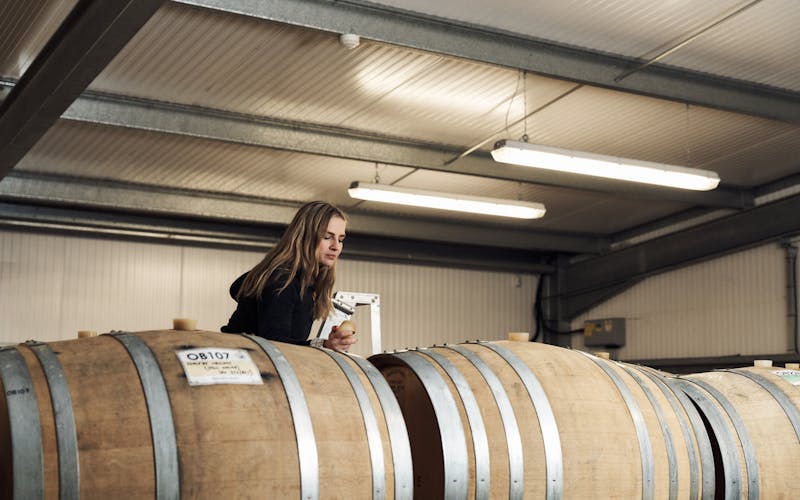

for Walpole members and
non-members available now
at The Londoner



In 2016, I had an epiphany in the Hotel Sacher in Vienna while talking to Till Reiter, fourth generation owner and CEO of Ludwig Reiter, an Austrian shoe company founded in 1885 by his great grandfather, the eponymous Ludwig. Situated on the outskirts of Vienna in the beautiful 16th-century estate of Süßenbrunn Manor, Ludwig Reiter was a business that employed 60 people to make around 22,000 pairs of shoes and boots a year.
Reiter, a modest, thoughtful man – who still drove the 1951 Pontiac that his grandfather had bought from an American officer stationed in Vienna after the war when the allies left in 1955 – was explaining to me about the history of the company when I asked him about his plans for expansion. What about China, for example?
The question seemed to puzzle him. He said that he had no desire to grow massively. It was enough for him to sustain his business, adding the odd own-brand store, perhaps – at the time he had a couple in Vienna and in Germany, and one in London, I recall – and scaling the wholesale business. But the grand plan was simply to have healthy, solid trade, selling well-designed and well-made shoes and boots to people who liked what he did, and then to pass the whole thing on to his two daughters.
His point seemed to be that he would be happy to maintain and develop this family business, just as his forebears had done, through adhering to good old-fashioned principles of quality manufacturing and craftsmanship, and the economics of supply and demand. At the time, when I was seeing people in my field looking to expand and grow through borrowing or raising investment, Till Reiter’s humility struck me like a hammer. OK, so the chocolate Sacher Torte and coffee was great. And I am half Austrian, so Vienna always plays to a romantic notion I have about my ancestry. But even so, I suddenly had to entertain the idea that bigger is not always better. Especially if growth is based on stoking a demand that may not really be there.
That’s not to say Till Reiter lacks ambition. Like any good businessman, he’s been happy to evolve and grow. Today he has more stores – six in Austria, seven in Germany and one in Switzerland – plus e-commerce, and makes around 30,000 shoes, still with a workforce of 60. And of course, like every luxury goods (and other) business, Ludwig Reiter appreciates the function of PR and marketing to stimulate demand. All he was saying is that the scale of the business should suit – and be led by – the reality of the marketplace.
Ludwig Reiter is part of the Mittelstand, those small to medium-sized businesses in German-speaking countries that make up a sizeable chunk of the economies in Austria, Germany and Switzerland. They are often family owned and run, or have a corporate culture that is family-like, have a long-term attitude, a focus on the customer and nurture and value their workforces. They, frankly, seem a world away from The X Factor and Britain’s Got Talent school of instant-success entrepreneurship that sees the rapid rise of billion-dollar enterprises like Amazon and Facebook, and global domination, to be the only route map worth following.
Based in Shoreditch in a building that we own, with 25 staff, my little creative agency now seems like a fine enterprise. Profitable, without debt and with good and loyal clients. From that tea-time revelation in the Hotel Sacher to this day, I have been a fan of sustainable, honest and realistic business, based on providing products and services that people actually want and/or need, rather than trying to grow for the sake of growth.
I say goods and services that people want or need, because there is, of course, a difference. Another German-speaker who I have a lot of time for is the CEO of Rolls-Royce, Torsten Müller-Ötvös, who, when I first met him, told me unequivocally that ‘Nobody needs a Rolls-Royce’. He’s right of course. A Roller is not just a mode of transport. It’s not even really a car (though it is, of course). It’s a desirable, symbolic piece of craftsmanship and design. People don’t buy one because they need it. They buy it because they want it. Supply and demand.
My conversation with Till Reiter, head of an Austrian shoemaker founded in 1885, came to mind last week when I was speaking to the head of brand and business development at an English equivalent of almost exactly the same vintage. He brought up the whole question of supply and demand in the time of COVID-19. Euan Denholm of Edward Green (founded 1890), the Northampton shoemaker, family business and Walpole member, was explaining to me how it had to close its factory on the Sunday before the Prime Minister announced the lockdown because a couple of its workers had to self-isolate. Since then it has remained quiet, and yet he still has orders to fulfil.
‘Supply and demand is not just about what happens here in the UK,’ says Denholm. ‘It’s international. So while there is a generally negative picture globally, different territories are showing different signs – South Korea is quite confident, as are other parts of East Asia. Some countries in Western Europe look like they may be beginning to turn the corner too. Though of course the situation in America is very difficult, as of course it is here.’
Edward Green has retail, wholesale and e-commerce channels, just like Ludwig Reiter, and employs a similar number of workers: around 70. The immediate challenge facing it is that while some on and off-line retailers have shut down, some are still operating: ‘You can still walk into a shop in Seoul,’ explains Denholm. And you can still order a pair of Edward Green shoes online on the firm’s own e-commerce platform, which at present is trying to fulfil orders by using existing stock. But the real issue is how to begin re-opening in a world of highly uncertain demand.
So he needs to find a way of restarting manufacturing with a reduced workforce that can operate social distancing. The government’s Coronavirus Job Retention Scheme, which enables businesses to “furlough” staff, which Edward Green has taken up, may be excellent in principle but, Denholm says, not nuanced enough for the firm’s needs: ‘It’s either on or off – and we are a business that is at present somewhere in between. It’s not what many businesses need – we want to find ways of effectively serving demand that do not see labour costs going through the roof.’
Denholm explains something that I hadn’t considered before, and that must be affecting every business that operates a production line: ‘We have skilled people and it is not so obvious as to how you can reduce headcount and maintain structures to meet a temporarily smaller volume of orders. In shoemaking, you have people who you can scale back – the clickers who cut leather and the closers who sew. But then there are those who have particular skills and operate dedicated machinery who are responsible for a much greater amount proportionally of the factory’s output. So how do you re-engineer those teams? A shoe has to pass through all those skilled hands.’
So the challenge is how do you re-think the manufacturing process in the short term and gear it up for a gradual reintroduction of workers as demand grows? Euan Denholm is preoccupied by the question of whether demand is suppressed at the moment – as it is – because of a lack of confidence or a lack of availability. It may be a combination of both, though he points out that if he were making running shoes – and could keep a factory open in which to make them – he’d be booming now.
Denholm does feel that if confidence returns, demand will shift accordingly. ‘Demand will grow,’ he says. ‘And having an idea of how we approach that transition is critical. The government’s furlough scheme has been really appreciated and necessary, but I do think that a tweak for short-time working will help the economy meet the demand that there is. We, for example, could operate a three-day operation, or shifts. At a certain point it will be important that so-called non-essential businesses open up.’
And could he do that while respecting social distancing? ‘A factory can be a comparativelynvironment. A reduced workforce by definition means that you can enforce social distancing more easily, and, of course, you can take other measures to keep the environment as safe as possible.’
So what are the Austrians doing, I wondered? I called Till Reiter and he told me that like Edward Green, Ludwig Reiter has closed all its own retail stores, as requested to by the government. It also closed its factory, but not because it was required to by the authorities, but because the majority of its sales are through its own outlets and so having shut these there was insufficient demand to keep manufacturing. ‘The good thing in Austria,’ Reiter explains, ‘is that we have a good state structure to cover most of the costs of the staff; and there is an old Imperial law that is about 200 years old that says that in a time of crisis landlords must refrain from collecting rent. So we have agreed to keep paying a small portion of this for our stores that are now closed.’
What about the stores outside Austria? ‘In Germany and Switzerland where there is no such law, we have managed to negotiate reduced rents for most of our stores, though I have to say it is the small private-owner landlords that have been most helpful – many actually live in the houses where we have our stores. The larger institutional ones have sadly shown the more ugly face of capitalism.’
The big difference for Ludwig Reiter is that the lockdown was loosened on Monday and smaller shops have been allowed to open. Larger ones will need to wait until the end of April, and there will probably be no restaurant and bar openings – and no form of public entertainment like cinema and theatre – before June. The interesting thing for us in the UK is that Austria will be a test case for an exit strategy.
Austria’s numbers of infections and deaths have been relatively low, and the lockdown has lasted for just about exactly a month. During that time the restrictions for people were pretty much the same as over here. ‘The thing in Austria is that when the situation became acute, the government immediately started with very strong restrictions and the population immediately accepted that and supported it, and perhaps this gave us a few days’ lead,’ says Reiter. ‘I feel that Great Britain was more hesitant to take action, and perhaps that made you lose a valuable few days?’
And once trade returns to a semblance of normality, does he still feel that he is right to pursue a steady path of organic growth, rather than aiming higher?
‘Yes, that’s the objective; in the short term I want to enjoy life as it is. I don’t want to target something I might not be able to live up to… I want to always find the pleasure in combining life and business. The life/work balance is important, and it’s easy if you keep your targets low enough and enjoy what you have instead of constantly reaching for something that is out of reach.’ And then he says something fascinating: ‘I believe that speed of growth is inversely relative to longevity. Businesses that grow slowly are much more likely to be ones that last.’
Euan Denholm of Edward Green is essentially on the same page. He believes that post-coronavirus there will be some sort of a reckoning. ‘We’ve seen how a number of factories have been able to adapt to making PPE, for example. We have been reminded of the importance of our ability to be a nation of makers,’ he says. Perhaps this will stimulate more interest in the act of manufacturing, rather than the areas of design, branding, PR, marketing and service-provision that we, as a nation, seem to be more well-known for these days? Denholm hopes the government might be prompted to look at this: ‘The manufacturing sector could be nurtured and developed. Here in Northampton there is a cluster of manufacturers making shoes and you often need a cluster-effect to make an industry viable. Northampton shoemakers now make for the world.’
And in words that echo those of an Austrian in the same line of work thousands of miles away he adds: ‘It shouldn’t be about making a fast buck, but about developing businesses that make great quality goods, and make them consistently.’
It is his belief that those types of products made by those types of businesses will always be in demand.
www.ludwig-reiter.com; www.edwardgreen.com





